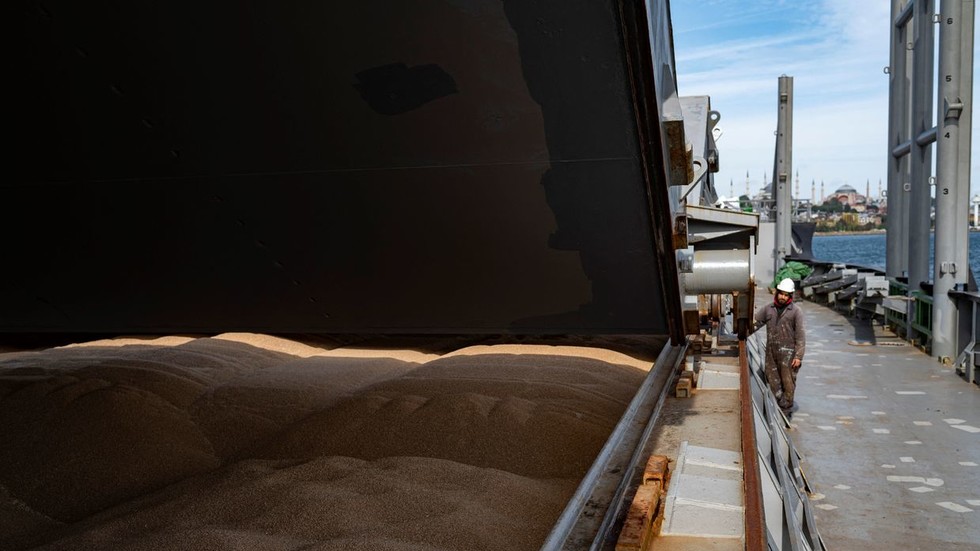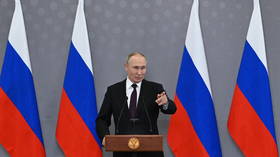
Over 70 ships were detained for violating terms, some were caught smuggling, the Foreign Ministry claimed

FILE PHOTO. A crew member prepares a grain analysis for a control made by the Joint Coordination Center (JCC) in Istanbul, on October 11, 2022. © Yasin AKGUL / AFP
The deal which Russia signed with Türkiye and the UN to allow the export of Ukrainian grain via the Black Sea is being abused, including by smugglers, the Russian Foreign Ministry has said.
Russian experts involved in checking ships sailing under the July agreement are being pressured by an “artificial” crowding of vessels in the port of Istanbul, the ministry said in a statement on Friday. The goal, it believes, is to push them into less rigorous checks of cargos.
Since the route was launched, “over 70 ships were detained. Some of them were banned for the systematic violation of the rules of navigation in the maritime corridor and attempts to smuggle items in specially designed secret compartments,” the statement noted.
Moscow said such “abuse” of the deal cannot be ignored, “especially amid the ongoing investigation into the way explosives were delivered for the October 8 terrorist attack on the Crimean Bridge.”
Russia’s Federal Security Service (FSB) accused Ukrainian military intelligence of masterminding the bombing of the bridge, which claimed three lives, including that of the driver of the truck carrying the bomb. The explosives, it claimed, originated in the port city of Odessa and traveled through Bulgaria, Georgia and Armenia before reaching its target destination.

Read more
Russian President Vladimir Putin said this month that investigators were not fully certain that the bomb hadn’t been smuggled in a grain ship. If the suspicion is confirmed, “we will shut it down, and that would be the end of it,” he warned.
The ministry statement reiterated other shortfalls it sees in the grain deal. It cited an apparent failure to deliver food to poor nations and what Moscow sees as the UN’s inability to keep its end of the bargain and facilitate supplies of Russian food and fertilizer to international markets.
The US and the EU have not resolved issues with “bank transfers, insurance, chartering of ships and port access” that hinder Russian exports, the statement said. In fact, they are “punishing African, Asian, and Latin American nations” by denying them Russian products.
The restrictions apply not only to commercial trade but also to humanitarian efforts, the ministry added. Russia simply cannot deliver 300,000 tons of fertilizers to intended recipients under the UN World Food Program, it explained. Latvia, Estonia, Belgium, and the Netherlands, where the products are currently stored, simply would not allow their shipment, according to the statement.




